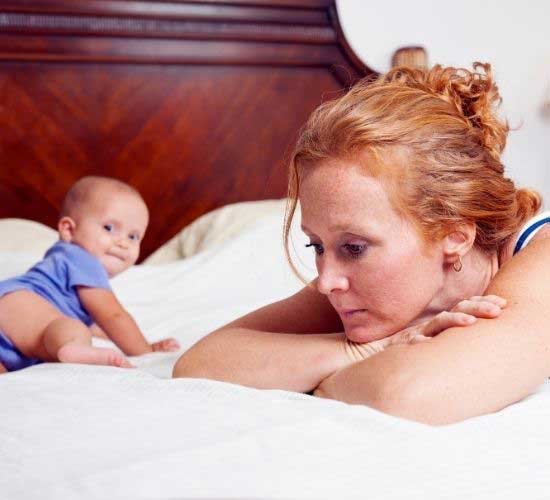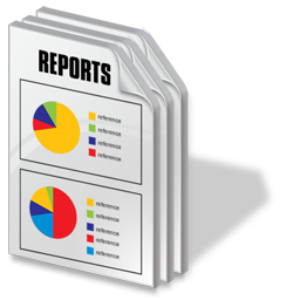
Postpartum depression in women is a type of mental disorder that usually happens after childbirth.
Maximum women get the “baby blues,” or feel gloomy or empty, within some childbirth days.
For many women, the baby blues stay for 3 to 5 days.
If someone’s baby blues don’t leave or feel gloomy or sad for longer than two weeks, postpartum depression in women can occur.
Feeling sad after childbirth is normal for mothers.
Read More: 9 Common Types of Depression: Symptoms, and Treatments

Postpartum Depression in Women
Postpartum depression is a severe mental disorder that involves the brain. It can bring adverse effects on your daily activities and physical health.
If you have depression, gloomy or empty moods don’t leave; it can hamper your daily life.
You might feel isolated from your baby, like you are not the baby’s mother, or you might not take care of the baby.
These feelings can be slight to severe. Depression is most likely a common difficulty after pregnancy.
How many women experience anxiety and depression in pregnancy and postpartum?
Approximately 10% of new mothers suffer from postpartum depression.
Signs of Postpartum Depression in Women:
A few regular changes after the pregnancy may occur postpartum depression.
If any of the following symptoms continue more than two weeks, visit your doctor:
- Restless or short-tempered feeling,
- Feeling sad, hopeless, or gloomy,
- Crying lots,
- Feelings to hurt the baby or herself
- Lack of interest or connection to the baby, or feel lonely, like she is not the baby’s mother
- Loss of energy or inspiration
- Eating disorder
- Sleeplessness or sleeping too much
- The problem of concentrating or making decisions
- Memory loss
- Feeling valueless or guilty like a bad mother.
- Loss of interest in events you used to like
- Withdrawing from friends and family
- Having pains, headaches, and, or abdominal problems that don’t leave.
Usually, a few mothers don’t tell anybody about their symptoms.
New mothers may feel nervous or guilty about their depressed feeling.
Any mother can be depressed before or after childbirth, which doesn’t mean you are a bad mother.
Both you and your baby don’t have to be a sufferer.
Telling your doctor can help you solving the symptoms of postpartum depression.
Causes of Postpartum Depression in Women:
Read More: 8 Physical Symptoms of Chronic Depression and Anxiety
Postpartum depression causes in women might be Hormonal changes.
- During pregnancy, your estrogen and progesterone hormones level become high than ever.
- After the first 24 hours of giving birth, hormone levels rapidly drop back to normal.
- According to the Experts – rapid changes in hormone levels may cause depression.
- This is the same as hormone changes before a woman’s menstruation.
- Thyroid hormones level may also drop after childbirth.
- The thyroid is a tiny gland in the neck that controls how your body uses and supplies energy from food.
- Low thyroid hormones level can cause depression symptoms.
- Only a blood test can tell your symptoms.
- If so, your doctor can suggest thyroid medication.
Other feelings may lead to postpartum depression. Mothers with Postpartum Depression may have the following symptoms:
- Tired after work and delivery
- Overwhelmed with a new baby
- Exhausted from a lack of sleep or broken sleep
- Lack of self-confidence to be a good mother
- Tension from changes in work and home routines
- Wants to be a perfect mom, which is unrealistic
- Less good-looking
- Day-long busy
These are common feelings among new mothers.
But postpartum depression is a severe health condition and can be cured.
Risk Factors of Perinatal Depression:
You may be at risk of postpartum depression if:
- You or any of your family members has bipolar disorder history.
- Anybody doesn’t get support from family and friends.
- You were blue in the period of pregnancy.
- Had any previous pregnancy or birth problems.
- You have money or relationship or problems.
- You are younger than 20
- Someone with the alcoholic problem
- Have a baby with special requirements.
- Have a problem with breastfeeding
- Had an unexpected or unwanted pregnancy
Treatments of Postpartum Depression in Mothers:
Treatments for postpartum depression are given below:
# Talk Therapy:
Talking therapy is suggested to talk to a psychologist, therapist, or social worker to learn what you feel, think, and act for depression.
# Medicine:
Your doctor can suggest antidepressant drugs.
Doctors recommended medicines that can help cure symptoms of depression.
Read More: 8 Causes of Teenage Depression: Especially for College Students
# Electroconvulsive Therapy:
ECT can be applied in the last stages of postpartum depression.
The treatments mentioned above can be applied alone or together. Your depression can bring an adverse effect on your baby. Getting treatment is vital for you and your baby. Taking medicines or therapy does not make you a bad mother or a failure.








